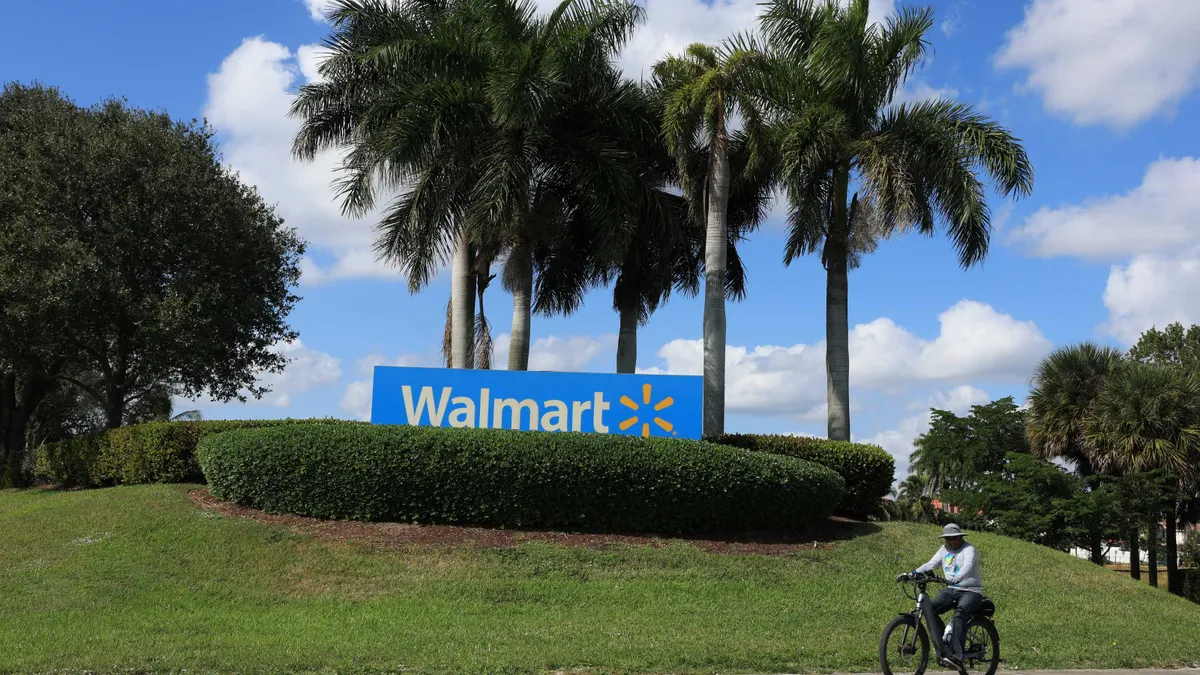Update: Nov. 11, 2021: Affirm gave an improved business outlook for the rest of its fiscal year when it announced fiscal first-quarter results on Wednesday, and didn't elaborate on stationary bike-maker client Peloton's recent gloomy forecast for its own sales.
Affirm said in its Wednesday press release that gross merchandise volume and revenue are likely to be better than previously forecast for the fiscal year that ends next June. The company said volume could rise to as much as $13.38 billion and generate revenue of as much as $1.25 billion.
Peloton, which Affirm has touted in the past as its biggest client, provided an opposite reading on its own earnings last week, announcing that the outlook for revenue wasn't as rosy as previously expected.
On a conference call with analysts Wednesday, Affirm Chief Financial Officer Michael Linford side-stepped a question from one analyst who asked about Peloton versus non-Peloton income.
“We’re not going to update any sort of forward-looking number for Peloton, except to say that the Q1 results for us on Peloton did exceed our Internal estimates and there’s certainly nothing that we’ve seen to suggest that we should be changing our outlook overall in light of where that business is at," Linford said on the call.
Affirm pointed to other relationships with retailers Amazon, Shopify and Walmart as providing significant support going forward for the company's buy now-pay later installment financing business.
The BNPL company reported fiscal first-quarter revenue rose 55% to $269.4 million for the quarter ended Sept. 30 compared to the year-earlier period, and posted a net loss of $306.6 million, its fifth consecutive quarterly loss.
Investors dinged Affirm's stock in recent days, with shares dropping 23% between Monday and the close of trading Wednesday, though they were recovering somewhat early Thursday. Meanwhile, Peloton's shares were down nearly 45% since just before it delivered its lower projections last week.
---------------------------
When Affirm reports earnings on Wednesday, analysts who follow the installment payment company will be eager to know the impact of last week's bombshell warning to investors from its biggest client Peloton.
Stationary bike-maker Peloton, disclosed in its earnings report Thursday that annual revenue for its fiscal year is likely to be as much as $1 billion lower than previously expected. Now the question is: How will that affect its buy now-pay later partner Affirm? A spokesperson for Affirm declined to comment.
COVID-19 lockdowns gave both companies a boost last year as consumers pedaled at home, pumping Peloton's bike sales, at-home exercise programs, and financing by San Francisco-based Affirm. That surge dovetailed with consumers' growing interest in buy now-pay later options online.
As a result, Peloton sales surged as a percent of Affirm's business. They accounted for a fifth of Affirm’s revenue in the fiscal year ended in June, though analysts note that percentage decreased in the final quarter of the year to about 10%.
Fast forward to last week, and Peloton’s stock took a beating when it warned investors of disappointing results, cutting its stock price by 35% Friday. Affirm’s shares dipped Friday, and then recovered Monday, but today have moved lower than Friday's closing price.
The decline seems insignificant in light of Affirm’s shares having nearly tripled over the past six months, after Affirm signed a new partnership with e-commerce juggernaut Amazon in August and rolled out a plan for a debit card.
The company is led by CEO and founder Max Levchin, who was also a co-founder at PayPal. It's among a pack, including AfterPay and Klarna, that are dueling in the expanding BNPL market.
Typically, BNPL financing options let consumers pay for goods and services without interest payments over four installments, but include potential fees when payments are missed.
Affirm-Peloton tie
Affirm's revenue has been on the rise, if not its profits. In its report for the fiscal fourth quarter ended June 30, Affirm's revenue jumped 70% over the year-earlier period to $261.78 million, and 13% over its third quarter’s results, according to Affirm’s annual filing with the Securities and Exchange Commission. Still, the nine-year-old company reported net losses in each of the quarters for the fiscal year.
It has made clear that its fortunes are tied to Peloton. Back in January 2018, Affirm boasted on its website that its financing backed “close to 30% of Peloton’s monthly online business sales.” The tight partnership has continued since then.
“While we believe our growth will facilitate both revenue growth and merchant diversification as we continue to integrate with a wide range of merchants, our revenue concentration may cause our financial performance to fluctuate significantly from period to period based on the revenue from such merchant partner,” Affirm said regarding Peloton in its Sept. 17 annual SEC filing.
Last year, Affirm renewed its merchant agreement with Peloton for another three years, ending in September 2023, with automatic renewal for successive one-year terms, the filing said.
Analysts weigh in on expected Peloton impact
When Affirm reports results for the fiscal first-quarter tomorrow, there are sure to be questions about the Peloton impact. That’s partly because the Peloton hiccup may play into Affirm’s effort to book more revenue from shorter-term financing partnerships.
“Peloton’s underperformance is a double-edged sword,” Barclays analyst Ramsey Al-Essal said by email. On one hand, it may be a “near-term headwind” for Affirm, but on the other hand, “investors are more positive” on lower-priced, shorter-duration installment plans, like those Affirm has through its Shopify tie, as opposed to bigger-ticket items paid out over longer periods, as in the Peloton loans.
“Despite the tactical headwind from a (Peloton) slowdown, less long-term exposure may be viewed by investors as strengthening the model,” he said.
"Affirm is sort of advantaged in the marketplace right now because they can do it all,” Al-Essal added in an interview.
Bank of America analysts expect the gross merchandise value from the Peloton relationship to be 66% lower for Affirm in the quarter versus the year-earlier period, with the exercise company making up about 6% of the overall value, they said in a Nov. 2 report. They also noted the Amazon benefit isn’t likely to show up much until the following fiscal year in 2023.
Nonetheless, Bank of America doubled down on Affirm's future. The momentum "in the non-Peloton business remains robust" and the BNPL market is gaining customers, especially in e-commerce, with Affirm in a strong competitive position, the report said.
Another analyst agreed with the positive outlook. “Peloton’s revenue forecast decline won’t be an important factor for Affirm’s outlook because the “debit +” card and Amazon deal are far more important considerations,” Mizuho Securities analyst Dan Dolev said by email.






















